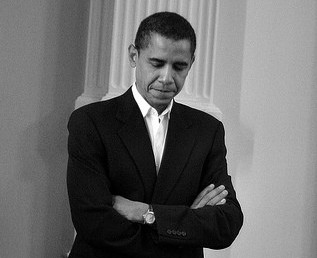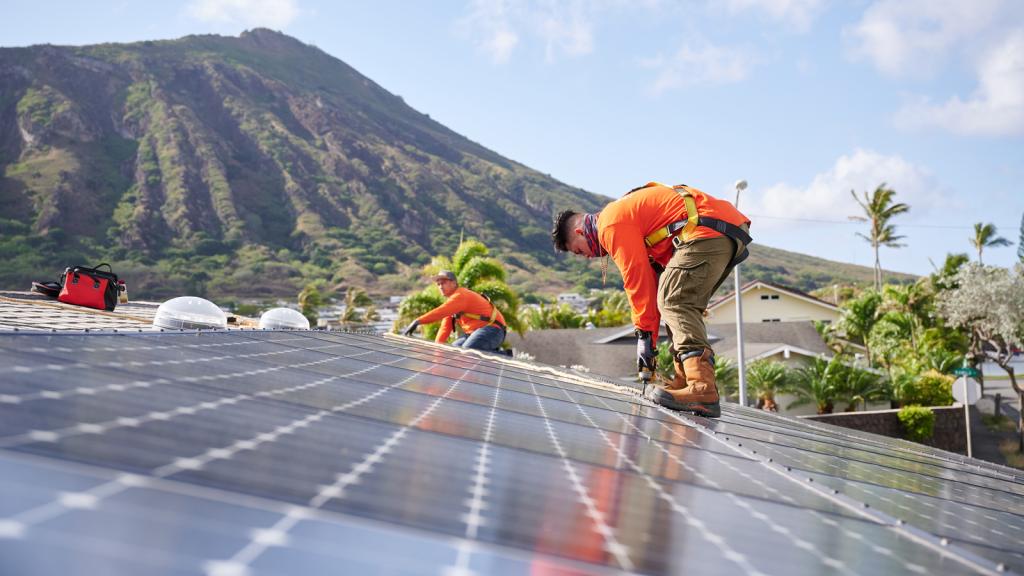President Barack Obama so far has said nothing about the screamingly obvious connection between the spoils of fossil-fuel dependency and the vision of a clean-energy economy that he’s been sporadically promoting. Instead he had this tepid statement on the Gulf oil spill Friday morning: “I continue to believe that domestic oil production is an important part of our overall strategy for energy security.”
What happened to never letting a crisis go to waste? This mother of a crisis runs straight into our fossil-fuel addiction. It’s a prime opportunity for progressives and clean-energy advocates to demonstrate the desperate need for new forms of energy. It’s a prime opportunity to pressure the Senate to put a price on carbon pollution and invest in the R&D necessary to jump-start a clean energy economy. It’s a prime opportunity to do all this without the corrupting influence of Big Oil, which had a hand in writing the elusive Kerry-Graham-Lieberman energy bill. Executives from BP–the company responsible for this mess–and Chevron and ConocoPhillips were planning to stand in support at the rollout of the KGL bill this week. Now’s the chance to move a bill that isn’t contorted by concessions to the dirty energy industries.
The president doesn’t get this, according to his public actions and words so far. He’s promised investigations and inspections and put new offshore drilling projects on temporary hold, until we can get more assurances of safety from the drilling industry. But on the big energy picture … nothing.
Andrew Sullivan gets it half right: “If the Democrats do not use this disaster to advance the energy bill ASAP, they may miss a critical moment to escape the oil-addiction even George W. Bush acknowledged in his final years.”
It is a critical moment that Democrats are insane not to use, but the KGL energy bill isn’t the plan we need–it’s the least-terrible bill that was believed to have a chance of passing in the Senate. Now, with this ongoing crisis changing the political climate, there should be an opening for a better bill.
Says Maggie Fox, president of Al Gore’s Alliance for Climate Protection: “This tragic event is a deafening wakeup call that America’s dependence on fossil fuels cannot continue. We know this dependence is a direct threat to our national security. This massive spill is a stark reminder of the environmental and economic dangers we face as well.”
It’s now being acknowledged that BP’s disaster in the Gulf threatens plans to expand offshore drilling. It might even make things difficult for existing offshore drilling to continue. Super. But if that’s all we can accomplish in the wake of this crisis–if the end result is that we just pipe in more Canadian oil and ferry in more Venezuelan, Nigerian, and Middle Eastern oil in tankers (the Exxon Valdez was one such tanker)–we’re still in trouble. Still addicted.
“If that oil had traveled down a pipeline to a refinery and then into the fuel tank of a car, it would have wrecked the planet just as powerfully,” writes Bill McKibben. “The slick of carbon dioxide spreading invisibly across the atmosphere is driving change on a massive scale … You can’t see it, but it’s wrecking marine life far more effectively and insidiously even than the spreading oil.”
We’ve got a host of safer, cleaner options, such as offshore wind, which should be easier to develop now that Cape Wind is nearly ready to go. Let’s run with them. This is a golden opportunity to completely change course and work toward ditching fossil fuels. America needs to hear that loud and clear, from its president.



